Permanent Deputy Minister Pham Ngoc Thuong chaired the conference. The conference was organized in a combination of in-person and online formats with the participation of representatives of leaders of units under the Ministry; representatives of the Military Women's Committee ( Ministry of National Defense ); research team of Hanoi National University of Education; leaders of the Department of Education and Training and specialized departments under the Department; Principals of kindergartens and general schools.
Many results contribute to improving the quality and position of the education sector.
Opening the conference, Permanent Deputy Minister Pham Ngoc Thuong emphasized: In recent times, the Party and State have paid great attention to education and training. Giving some examples, the Deputy Minister mentioned the passing of the Law on Teachers; the policy of exempting tuition fees for preschool and primary school students; many provinces supporting lunch for students; the construction of 248 boarding schools for primary and secondary schools in 248 land border communes; the policy of universalizing preschool education for children aged 3 to 5; the upcoming National Target Program on modernization and improving the quality of education and training...; especially Resolution No. 71-NQ/TW on breakthroughs in education and training development. In Resolution No. 71-NQ/TW, the work of quality assurance, quality accreditation, and building national standard schools continues to be affirmed.
The Deputy Minister also reiterated the attention to quality assurance, quality assessment, and building national standard schools in Resolution No. 29-NQ/TW, to once again affirm the importance of this work in improving the quality of education.
According to the Deputy Minister, there are very specific criteria for a school to meet national standards, from facilities to staff, education quality... and to achieve them, the school needs a lot of effort. Promoting the construction of schools to meet national standards is promoting the quality of education. Over the past time, localities and the Department of Education and Training have paid great attention to this work. Most resolutions in local Party Congresses have included criteria for schools to meet national standards.
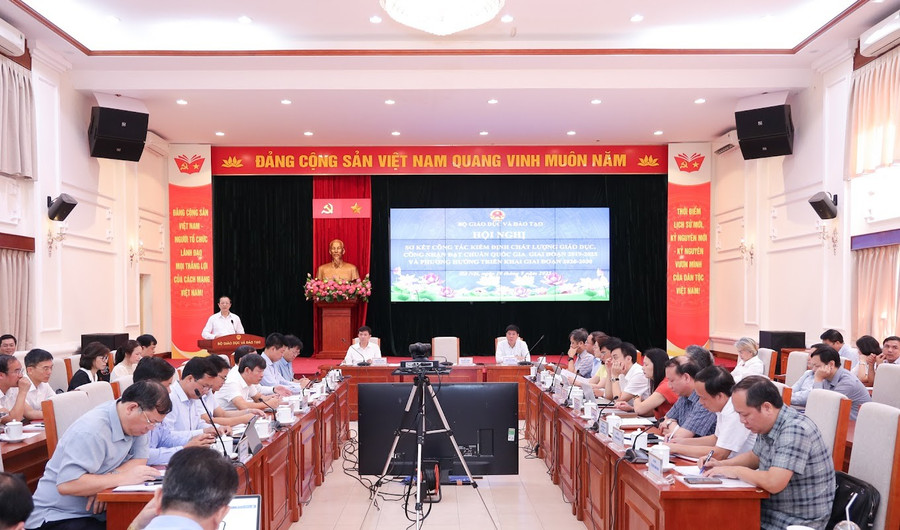
At the conference, the Deputy Minister suggested focusing on evaluating the results achieved in the past time; pointing out difficulties, limitations, causes, lessons learned, good practices, good models and identifying key tasks in the coming time to continue to do well in the work of assessing the quality of education and building schools that meet national standards.
Reporting at the conference, Mr. Pham Quoc Khanh - Deputy Director of the Department of Quality Management said that in recent years, the work of assessing the quality of education and building schools that meet national standards has been given attention and directed synchronously by the Ministry of Education and Training and localities, bringing about many important results, contributing to improving the quality and position of the education sector.
The Ministry of Education and Training has issued a complete system of legal documents and guiding circulars, creating a unified legal basis for implementing educational quality assessment and national standards. Departments of Education and Training have proactively advised, organized propaganda, and fostered professional skills, while promoting the application of information technology in management. Education management levels and schools have access to progressive management models; there has been a change in awareness in educational management; school management capacity and teaching and learning management have been enhanced.
As of May 31, 2025, 98% of educational institutions have been accredited; 69.7% have been externally assessed. Of these, 47.6% have achieved level 2; 16.2% have achieved level 3. Regarding national standards, 65% of schools have met the standards, including 48.9% at level 1 and 16.1% at level 2.
These results not only confirm the positive changes of localities and educational institutions but also contribute to forming a culture of quality, enhancing accountability and continuous improvement throughout the sector.
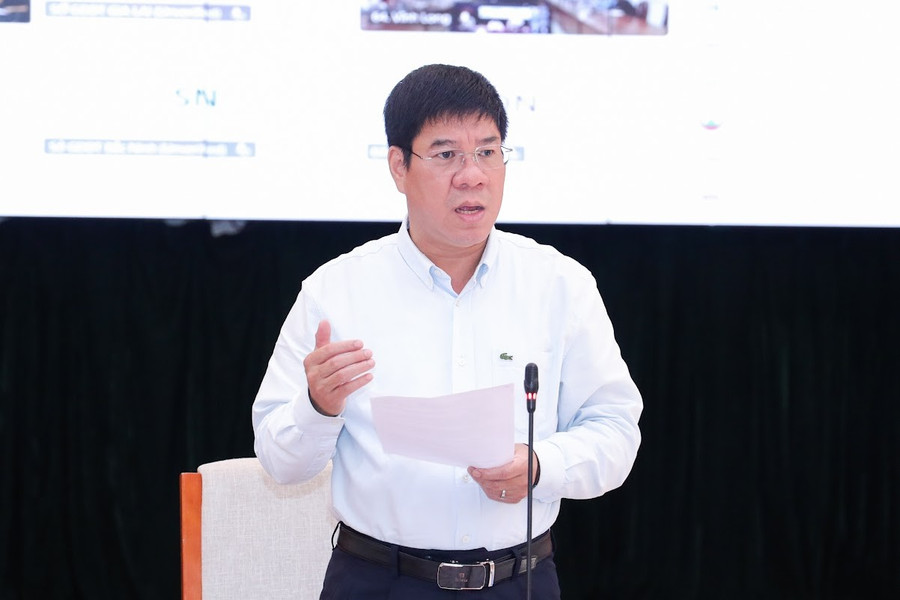
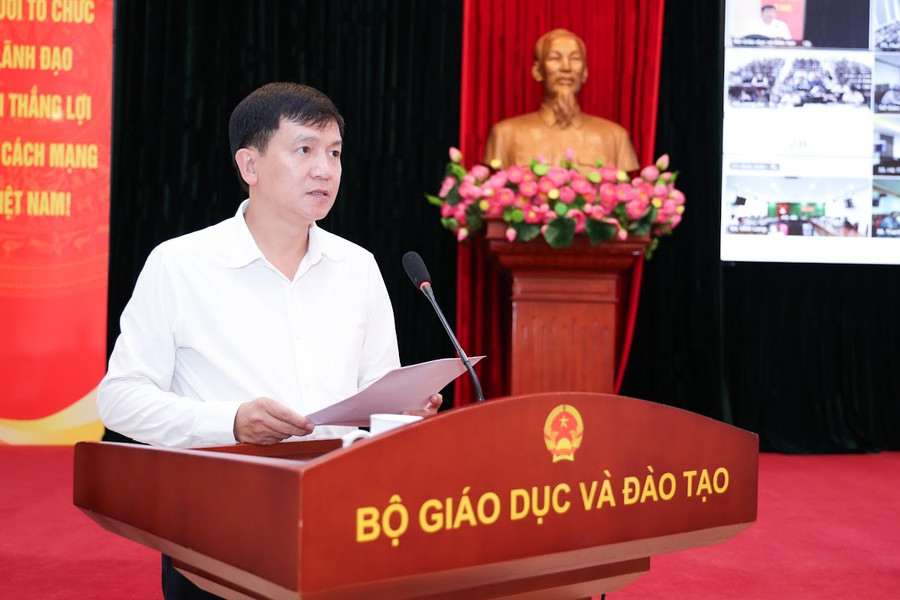
Besides the achieved results, the work of assessing the quality of education and building national standard schools still has difficulties: uneven awareness among staff and teachers; unstable external assessment team; degraded facilities in many schools, especially in difficult areas; limited investment resources, and the socialization of education has not been actively promoted.
The subjective cause comes from the fact that some management staff are not really dedicated and lack initiative in research and implementation. The objective cause comes from socio-economic conditions, rapid population growth in urban areas, and inadequacies in resource allocation...
The practice of the 2019-2025 period affirms that the unified direction of the Ministry of Education and Training and the close coordination of localities are decisive factors. The system of documents needs to be reviewed regularly; training, inspection and supervision must ensure consistency. Promoting the supervisory role of localities, applying information technology and transparent communication are important solutions to improve efficiency.
In the coming period, education will continue to be affirmed as the "top national policy", playing a key role in the country's development strategy. According to Resolution 71-NQ/TW, the goal by 2030 is that 80% of general schools will meet national standards. The education sector will strive to achieve the goal and requirements of improving the quality of equitable education, focusing on consolidating and promoting the achieved results, prioritizing the improvement of mechanisms, improving the effectiveness of supervision, promoting the application of digital technology, effectively mobilizing resources and developing staff capacity, conditions to ensure the quality of education, training high-quality human resources, nurturing talents, serving the goal of rapid and sustainable development of the country.
Raise awareness and focus on quality improvement after assessment
Sharing lessons learned in quality assurance and building national standard schools, Mr. Pham Quoc Toan, Deputy Director of the Hanoi Department of Education and Training, first mentioned the need to unify awareness, from the grassroots to management levels, especially the entire political system, about the importance of this work. This is also considered a very effective self-training and fostering solution for the team. Teachers participating in quality assurance and building national standard schools often carry out school management work very systematically.
Along with that, Hanoi always focuses on self-assessment work by directing 100% of educational institutions, both public and private, in the area to participate in this work; mobilizing the government, coordinating with parents and the community to participate and supervise; paying attention to investing in facilities; implementing scientific and objective assurance of external assessment work...
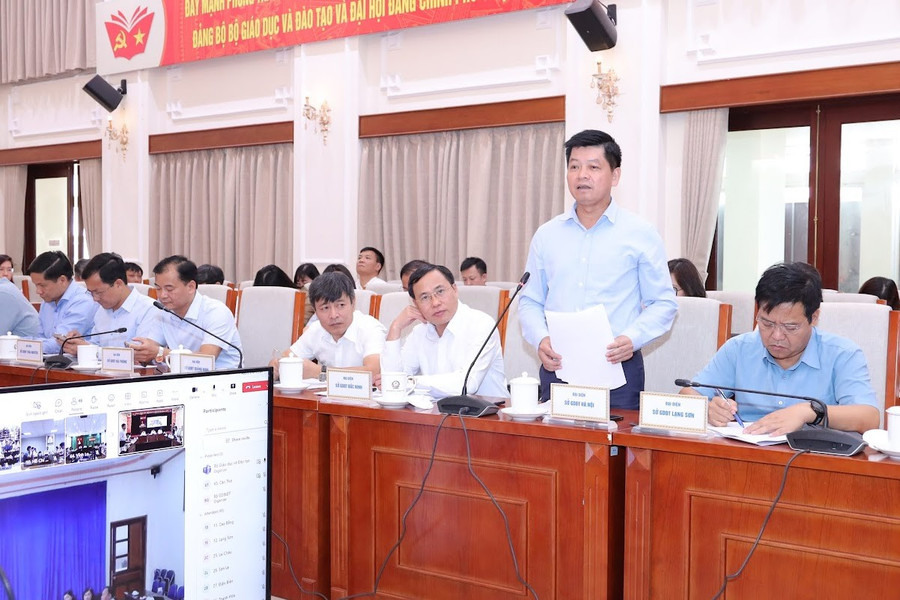
Mr. Ta Thanh Vu, Deputy Director of the Department of Education and Training of Ca Mau, is particularly interested in the support, supervision, and quality improvement after assessment, and believes that this is the key content to improve the quality of educational institutions.
“As of May 2025, 74.3% of educational institutions in Ca Mau province have met national standards. This is a fairly high rate, however, the quality improvement work after assessment still has some limitations, is not consistent, and lacks comprehensiveness,” Mr. Ta Thanh Vu shared.
Identifying this issue, the Department of Education and Training of Ca Mau considers post-assessment quality monitoring and improvement as an important step, with basic requirements: assessment results must become a school management tool; post-assessment monitoring support is a decisive step to ensure improvement in education quality; and monitoring methods must be diversified.
From the above request, Mr. Ta Thanh Vu said that the Ca Mau Education sector determined a synchronous, feasible support method, suitable to local conditions, to evaluate as a quality management tool, thereby improving quality. Some basic methods, such as: supporting capacity development; supporting resources, providing evidence sets, mobilizing budgets, social resources, connecting schools to create spillover in the implementation direction process...
"To improve the effectiveness of this work, the Department of Education and Training of Ca Mau recommends that the Ministry soon issue a unified guidance framework to monitor and improve the assessment process; at the same time, prescribe procedures, tools, and timelines to ensure both consistency and flexibility for localities. In addition, it is necessary to build shared software and a national database to connect the Ministry, Departments of Education and Training and educational institutions nationwide," said Mr. Ta Thanh Vu.
Source: https://giaoducthoidai.vn/nang-cao-chat-luong-giao-duc-tu-kiem-dinh-va-xay-dung-truong-chuan-quoc-gia-post749046.html


![[Photo] General Secretary To Lam chairs the meeting of the Central Steering Committee on preventing and combating corruption, waste and negativity](https://vphoto.vietnam.vn/thumb/1200x675/vietnam/resource/IMAGE/2025/9/29/fb2a8712315d4213a16322588c57b975)
![[Photo] General Secretary To Lam receives US Ambassador to Vietnam Marc Knapper](https://vphoto.vietnam.vn/thumb/1200x675/vietnam/resource/IMAGE/2025/9/29/c8fd0761aa184da7814aee57d87c49b3)
![[Photo] General Secretary To Lam attends the ceremony to celebrate the 80th anniversary of the post and telecommunications sector and the 66th anniversary of the science and technology sector.](https://vphoto.vietnam.vn/thumb/1200x675/vietnam/resource/IMAGE/2025/9/29/8e86b39b8fe44121a2b14a031f4cef46)
![[Photo] Many streets in Hanoi were flooded due to the effects of storm Bualoi](https://vphoto.vietnam.vn/thumb/1200x675/vietnam/resource/IMAGE/2025/9/29/18b658aa0fa2495c927ade4bbe0096df)
![[Photo] National Assembly Chairman Tran Thanh Man chairs the 8th Conference of full-time National Assembly deputies](https://vphoto.vietnam.vn/thumb/1200x675/vietnam/resource/IMAGE/2025/9/29/2c21459bc38d44ffaacd679ab9a0477c)

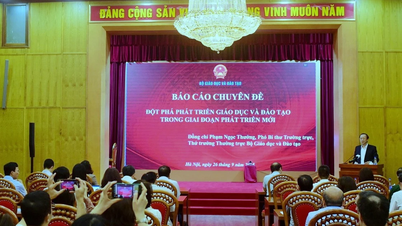




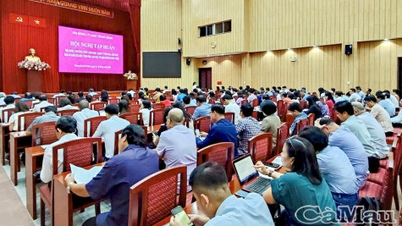




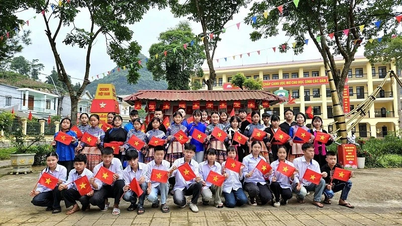

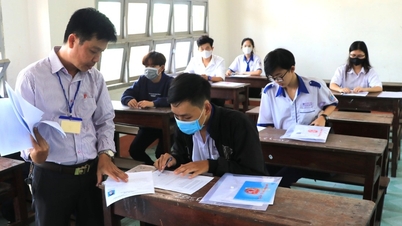

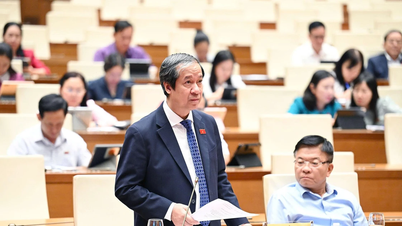


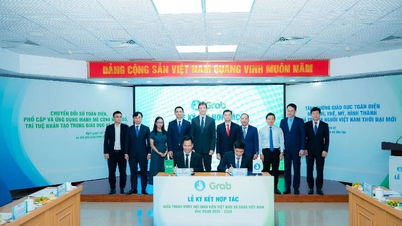





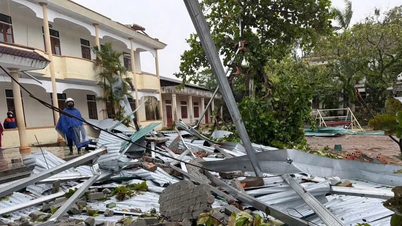
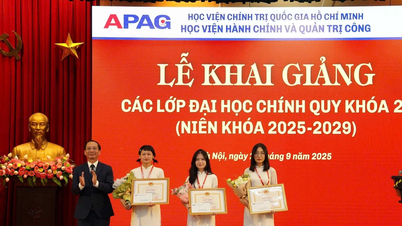
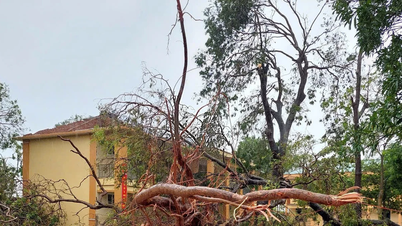
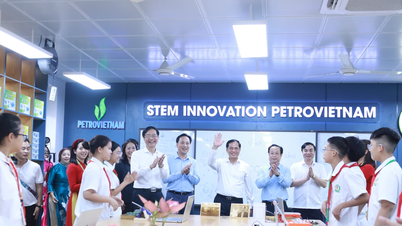

















































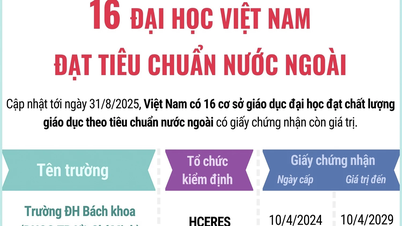


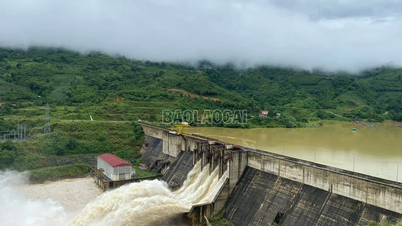


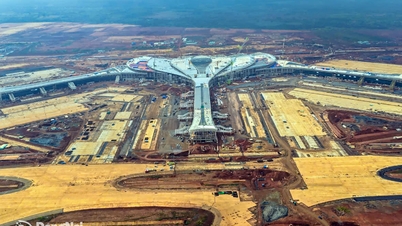














Comment (0)